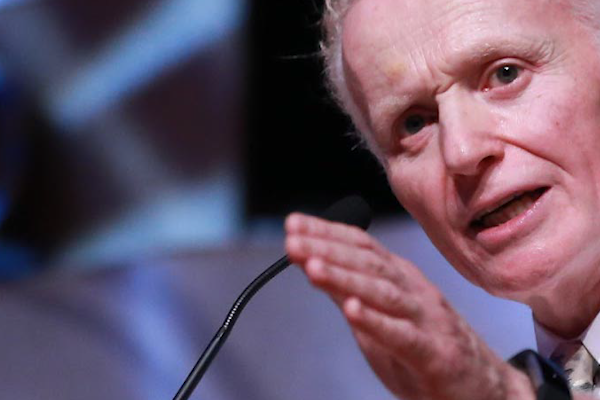Prime Minister Harper heads to Washington today with border issues high on the agenda and I cannot help but recall my trip to Chicago earlier in the week. My hosts were the good people of the National Strategy Forum, a venerable group bringing together people and organizations with an abiding interest in world affairs and American national security.
The head of the NSF contacted me after we began publishing MLI’s National Security Strategy for Canadians series, which debuted with Paul Chapin’s excellent paper on the topic.
I have been struck by the extent to which Americans interested in issues of continental security find that they have few opposite numbers in Canada who see the importance of these issues and are willing to devote the intellectual and human resources to thinking about them in an organized and thoughtful way. That is one of the main reasons we created the Macdonald-Laurier Institute, and it is already paying dividends for Canada and for MLI.
The main theme of my talk in Chicago was that most Canadians who go south to talk to Americans about Canada-US relations make a grievous mistake: they tend to frame the relationship in terms of economic interests, in other words in terms of what Americans and Canadians can get out of it.
I think that is an important question, but is actually subsidiary to a much more important one, which is the nature of the moral community we form in North America. This revolves around the issues of what we in our two countries are willing to sacrifice to protect fundamental values we share. That is the true basis of our community, because we can and do trade with people all over the world, but we do not expect them to have the same degree of commitment and openness to us as we look for from each other across the 49th parallel.
We form a community in the first instance because of our profound agreement on basic values such as democracy, freedom, individual autonomy, the rule of law, limited government and the willingness to sacrifice in defence of these values. Canada has shown its commitment to these values in innumerable ways, including two world wars, Korea, the Cold War, Afghanistan and more. We have earned the right to America’s trust and collaboration on matters of mutual interest, and vice versa.
The deepening of our moral relationship has been paralleled by the ripening of our economic relationship, so that we share not only values, but also interests. But we are now near the limits of where our common institutions, those we have created to manage our sharing of a common continental home, can take us in looking after our security and our prosperity.
The questions I posed to my American audience were as follows:
Have we reached a level of maturity as a moral and an economic community that will permit us to create new institutions to take our developing relationship to new levels of collaboration and intimacy? Or will we bring progress to a halt, at a considerable cost to our power to project our shared values abroad, to keep ourselves safe from external threats, and to raise our standard of living?
On the answers to these questions much depends. Watch this space for the text of my remarks to see how I suggest Canadians and Americans should want to answer these questions.



